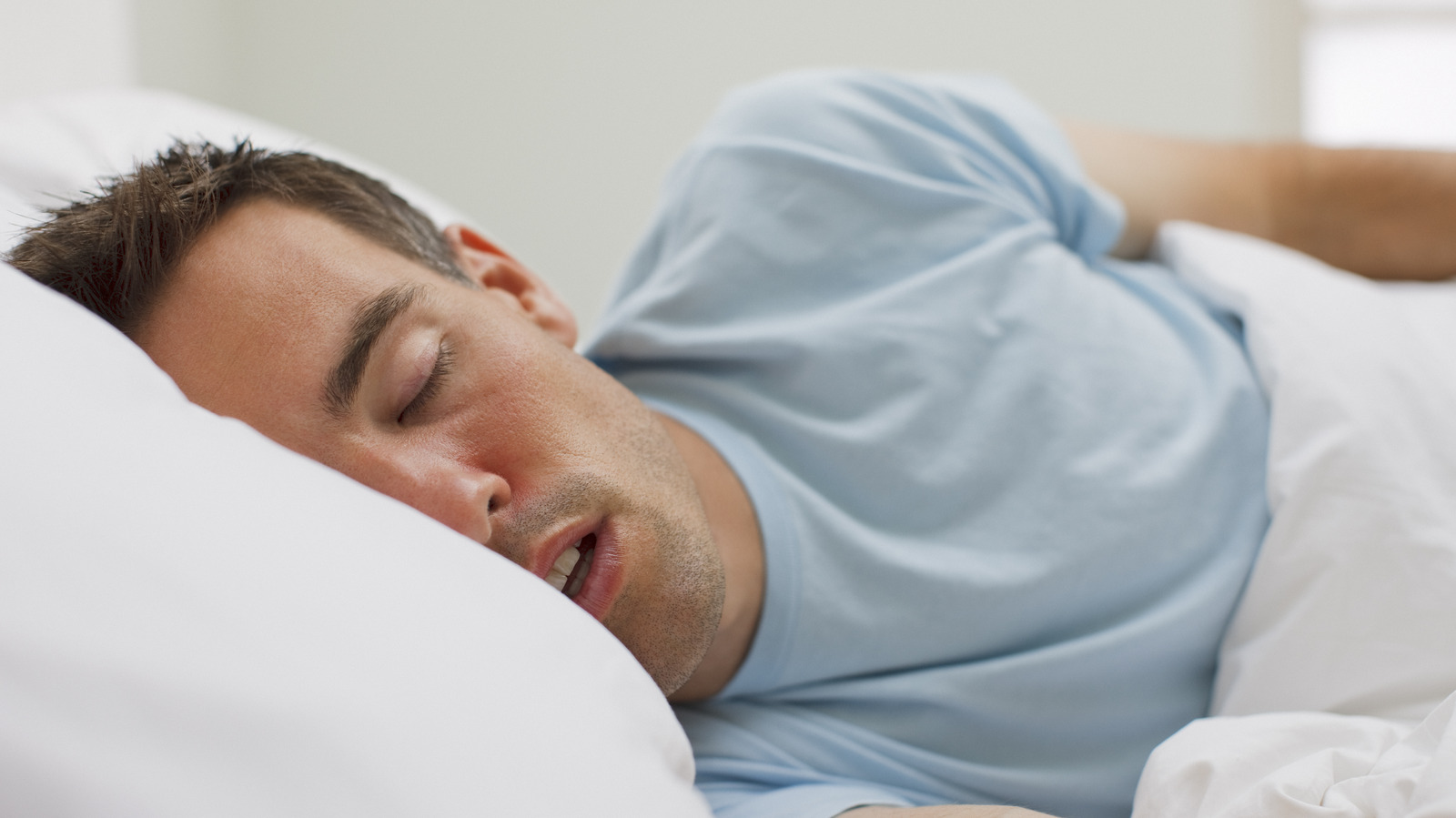[ad_1]

Obviously, if you’re used to going to bed at 10 and one night you stay up until midnight, you’ll probably fall asleep pretty quickly. And let’s face it, sometimes a hard workout in the morning followed by a hectic day at the office could have you crashing hard once your head hits the pillow. According to the Sleep Foundation, alcohol will also make you go to sleep faster, but you might not get quality sleep. Having a short sleep latency every night could mean you’re not getting enough quality sleep at night. Because your body is aching for rest, it doesn’t waste time to start your first sleep cycle.
Falling asleep quickly could also indicate sleep disturbances or a sleep disorder. Sleep disturbances can disrupt your total sleep time and result in you being tired the next day. A short sleep latency could mean a sleep disorder such as sleep apnea, where your breathing temporarily stops due to a block in your air flow (per Better Up). Circadian rhythm disorders disrupt your natural sleep-wake cycle and often affect night-shift workers and people who travel across time zones. Some people could lose sleep because of a movement disorder such as restless leg syndrome, according to Cedars Sinai.
[ad_2]
Source link
